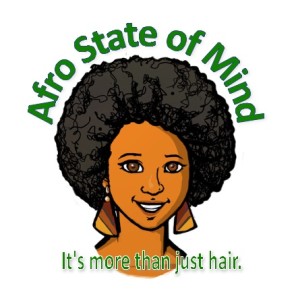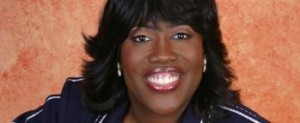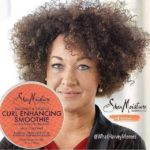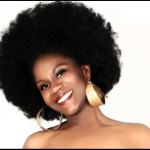By now you’ve heard about Sheryl Underwood’s comments about Black hair being nasty on CBS’ national syndicated show called The Talk.
In case you missed it here’s a brief recap:
On Friday, Aug. 31, a re-run episode of CBS’ “The Talk” featured the ladies discussing what supermodel Heidi Klum does with her biracial sons’ shorn hair, Mediate first reported. (In a previous interview with Your Tango, Klum had detailed how she kept sons Henry’s and Johan’s hair after shaving their afros and made art out of the pieces.)
Underwood, apparently, couldn’t understand.
“OK, I’m sorry, but why would you save afro hair?” Underwood asked. “You can’t weave afro hair. You never see us at the hair place going ‘Look, here, what I need here is, I need those curly, nappy beads.’ That just seems nasty.”
Now in her apology, made both on the Steve Harvey show and with CurlyNikki, Underwood says:
The discussion was about cutting and saving hair. I didn’t speak about Heidi Klum or her children’s hair. I stated that the act of saving hair was ‘nasty’… People are accusing me of calling natural hair ‘nasty’. I did not say that.
Lets pause right there for a moment.
When you watch the clip (embedded below) or read the transcript from the show, it is clear that Underwood is being disingenuous when she claims she didn’t say “Afro hair” was nasty.” As soon as Sara Gilbert—a White woman and co-host on the show—admits that she too saves her kids hair, Underwood is quick to distinguish Gilbert’s type of hair from “Afro hair.”
When Sara Gilbert admitted to keeping some of her own son’s hair, Underwood interjected saying, “Which is probably some beautiful, long, silky stuff…that’s not what an Afro is.”
Continuing her apology, Underwood tells CurlyNikki that it was just a bad choice of words and she doesn’t have self-hate.
I’m not what you think I am. I don’t have self-hate. I am not ashamed of my Blackness or who I am. In high school I had a giant afro. In college I was militant. I loved my afro puff. My dad instilled Black pride in me.
Folks. As with most issues involving Blackness, this is complicated.
Black White Supremacy
In my book I spend a lot of time discussing how I became a Black White supremacist.
As uncomfortable as it is to believe, slavery didn’t just turn White people into White supremacists. It essentially created a cultural value system that turned me into one too. My indoctrination as a Black girl in this society had turned me into someone who valued Whiteness above all else. As a result of actually believing the negative messages about Blackness —and the positive messages about Whiteness —I had essentially turned into a high functioning Black White supremacist. And as a Black White supremacist raised in a world that values Whiteness, learning to despise my nappy hair was as natural as learning to breathe. This is how internalized racism works. And one thing I realized during my freshman year of college is that I was full of internalized racism.
Even though my story is personal to me, my experiences as a Black girl aren’t unique. We are all—Black, White and otherwise—bombarded on a daily basis with messages that tell us that being Black is the least valuable. We are surrounded by a 24/7 message machine that pumps out a consistent message: “Black skin/culture/hair/features/life are less than.”
Now, I too grew up in a household that instilled Black pride. Like Underwood I had parents, aunts and uncles who did their best to present a different message about Blackness. I was given books, exposed to history and taught to see myself as descendant of a strong and beautiful people.
But I still wanted “good” hair.
I still thought light skin and light eyes were more valuable. I could rattle off facts about Black history…but that did not necessarily translate into believing that my own very kinky/coily/nappy hair and skin were pretty.
The books and other resources that my aunts and uncles sent me could not overcome the seemingly never-ending stream of messages that said Blackness was less valuable. Learning my history as a kid became more of an academic exercise. It built up my mind and sense of pride, but simply did not translate into learning how to see Black people as inherently, physically beautiful…my family’s books and other learning materials were no match for the competing “standard of beauty” messages that told me no matter how beautiful my history might have been—I was still a nappy-headed Black girl.
So when Underwood says that she doesn’t have self-hate because she was raised in a house that taught Black pride, I get that.
But what Underwood doesn’t understand is that her comments revealed a deeper truth about growing up Black in this society. The power of the messages that say our hair is “nasty” can often over power the seeds of self-love many of our parents try in vain to plant. Without constant affirmation many of us grow up knowing that “Black is beautiful” but that doesn’t mean we believe it applies to us individually.
So What Do We Do?
As noted by Dr. Yaba Blay, a professor at Drexel University, we have to be serious and intentional about our commitment to affirming our children and their beauty, intelligence and just overall awesomeness.
Otherwise, they are at risk of becoming adults who invoke laughs about “nasty” “Afro hair” on national television.
Dr. Blay says,
Thankfully, I had my Auntie Janet. A close friend of our family, Auntie Janet is a light-skinned African-American married to a Ghanaian. Whenever I would see her, she would make a big fuss over my skin. Like clockwork, each and every time I saw her, she would hold my face between her hands and say, “Oh my goodness! Look at your skin. It’s flawless. Tell me your secret!” And each time, I would giggle and say, “I don’t have any secrets! This is just my skin!” And though she literally told me “You are so beautiful” time and time again, it was through her eyes that I was able to affirm the beauty of my complexion despite the fact that the larger society communicated otherwise.
Auntie Janet ‘sang my song’… Every little girl deserves an ‘Auntie Janet’ in her life… sometimes we need a little bit more than our mother’s love. We need constant affirmation of our beauty. We need to know that even though there are people in this world that would have us believe that our skin color is ugly, that it is they who have a problem – not us.
She’s right. Black kids deserve a community of Auntie Janets who will affirm them and empower them with words of wisdom and appreciation. I’ve made it a point to tell the parents of little Black girls how beautiful their skin color is. I try to compliment the little Black girls in my community on how pretty their hair is. When I see them with White dolls I try to find a way of saying how beautiful their own skin color is.
Yes it seems awkward at first. Yes sometimes the little girls look at me like I’m crazy. But I refuse to be silent. Because as Dr. Blay points out,
Our girls need constant affirmation. They need to know that even though there are people in this world that would have us believe that our natural hair is “ugly” and “nasty,” that it is they who have a problem – not our girls. Not us.
Please consider this my plea to you that you make it a point to tell the little girls (and boys) in your life how beautiful they are. Remind them constantly about their limitless potential. Talk to them about how gorgeous their pretty brown skin is. Commit to being some little girl and boy’s “Auntie Janet” – a person who never fails to speak truth to their own power.
Remember, it’s important for our kids to know Black history facts. It’s important for them to have a sense of racial pride. But they must also have a community of adults who are going to affirm their beauty. They need to be surrounded by role models who never let them believe that they are anything other than beautiful.
That’s one way we can prevent future outbursts like the one our sister Sheryl Underwood experienced. This is bigger than Underwood. It’s about the little girls and boys all around us (and those within us) who need an extra dose of loving support.
Let’s be their Auntie Janet. We could all use one.
If you’re looking for more thoughts from an Afro State of Mind, check out my book “Afro State of Mind: Memories of a Nappy Headed Black Girl now available on Amazon.com in paper back or e-book! And if you want to stay connected follow me on Twitter, “like” Afro State of Mind on Facebook or catch up on my latest youtube videos!






On point! Thanks for sharing this..